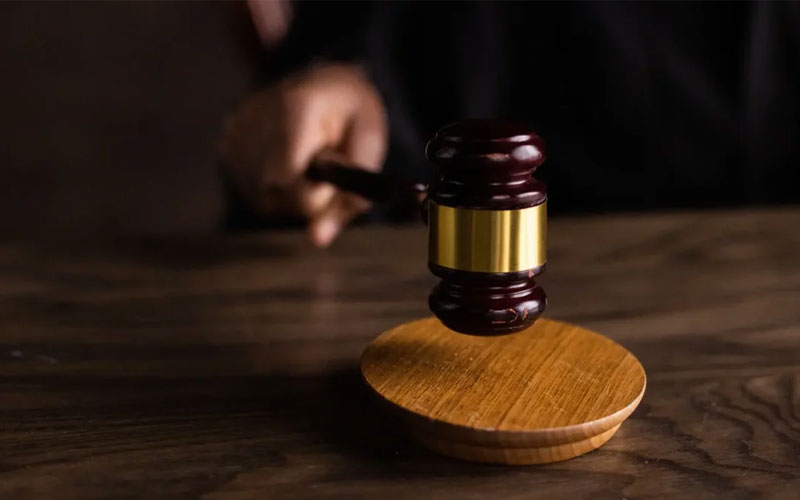When it comes to breaking intervention orders, you may find yourself in a complex legal situation with far-reaching consequences. Understanding the initial steps to take after a breach can significantly impact the outcome of your case.
However, the intricacies of legal procedures and potential defences can be overwhelming. How you handle these critical moments can shape the course of your legal journey and determine the severity of the repercussions you might face.
Seeking guidance from experienced legal professionals, such as Pearsons Lawyers, can provide valuable insights and support in navigating through the complexities of intervention order breaches.
Key Takeaways
- Breaching an intervention order can result in criminal charges, fines, prison sentences, and a permanent record.
- Seek legal advice immediately if facing charges for breaching an order to navigate the legal process effectively.
- Intervention orders are enforceable nationwide, impacting employment, licenses, and even interstate movements.
- Document events, report breaches, and seek legal guidance promptly to address and navigate the consequences effectively.
The Consequences of Breaking Orders
Breaking intervention orders can result in severe legal consequences, including criminal charges and potential imprisonment. It’s crucial to understand that breaching these orders is considered a serious offence with significant repercussions.
The court penalties for violating intervention orders may involve prison sentences, fines, and the creation of a criminal record. Each breach is taken seriously, and no violation is seen as minor. It’s essential to comprehend the gravity of the situation, as the legal system doesn’t tolerate breaches of intervention orders.
Therefore, it’s imperative to adhere to the conditions set forth in order to avoid facing the harsh consequences of criminal charges and potential imprisonment.
Legal Procedures for Breaching Orders
When breaching an intervention order, understanding the legal procedures is crucial to navigating the consequences effectively. Penalties for breaching orders can include prison sentences, fines, and criminal records. Court procedures for handling breaches are taken seriously, with no breach considered trivial.
It’s essential to report breaches promptly, as police are obligated to act on breach reports. Seeking legal advice is highly recommended if charged with breaching an order, as deciding whether to plead guilty or not guilty can significantly impact the outcome. Having a lawyer for court hearings is advisable, and seeking legal counsel well before the hearing date is prudent.
Breaching orders is viewed with severity by the court, emphasizing the importance of understanding penalties and court procedures thoroughly.
Interstate Movement and Orders
Understanding the recognition and enforcement of intervention orders across different Australian states and territories is crucial when considering interstate movement. Legal implications arise when a protected person or respondent relocates interstate with an existing intervention order.
While intervention orders from Victoria are recognized nationwide, breaching these orders can lead to charges, regardless of the location. It’s essential to seek legal advice before moving interstate, especially if children are involved in the order.
Interstate relocation may impact the enforcement of the order, and breaching conditions can have serious consequences regardless of the state or territory. Therefore, understanding the legal implications and seeking guidance is vital to navigating the complexities of interstate movement with intervention orders in place.
Impact on Employment and Licenses
Relocating interstate while under the constraints of an intervention, order may have significant implications on your employment opportunities and licensing privileges. Job implications can arise as orders may affect job locations and working with family members. Certain occupations like security officers and roles requiring clearance may be impacted by these orders.
Moreover, obtaining a criminal record due to breaching an order can hinder job prospects and even travel opportunities. License restrictions can also come into play, with orders potentially banning gun possession and leading to the cancellation of permits. In some cases, individuals may need to apply to be deemed a ‘non-prohibited person’ to retain or obtain a gun license, highlighting the far-reaching consequences of breaching intervention orders.
Seeking Legal Advice for Breaches
Seeking legal advice for breaches is imperative to navigate the complex legal consequences and implications that may arise from violating an intervention order.
When charged with breaching an order, seeking legal representation is crucial. A lawyer experienced in intervention order cases can provide defence strategies tailored to your specific situation. They can advise on whether to plead guilty or not guilty, prepare you for court hearings, and work towards minimizing potential penalties.
Legal representation ensures that your rights are protected and can significantly impact the outcome of your case. It’s recommended to seek legal advice well before the hearing date to adequately prepare your defence and understand the legal procedures involved in intervention order breaches.
Dealing With Complaints and Disputes
When facing complaints or disputes related to breaches of intervention orders, maintaining a record of events is crucial for effective reporting and resolution. Keeping a detailed diary of incidents can provide essential evidence when dealing with authorities.
Here are some key points to consider:
- Diary Documentation: Record dates, times, and details of breaches.
- Reporting Breaches: Ensure timely reporting to the relevant authorities.
- Complaint Resolution: Seek guidance on how to address complaints effectively.
- Police Actions: Understand the potential outcomes of involving the police in breach situations.
Understanding Police Actions
Understanding the actions taken by law enforcement authorities in response to breaches of intervention orders is crucial for navigating legal consequences effectively. When breaches are reported, the police response is typically swift and decisive. Consequences for breaching intervention orders can include criminal charges, fines, and potential imprisonment.
Police must act on breach reports, and breaches are taken seriously by the court, with no breach considered trivial. Reporting breaches promptly is essential to ensure that appropriate actions are taken. Seeking legal advice if charged with breaching an order is highly recommended to understand the potential ramifications and navigate the legal process effectively.
Deciding on the plea and having legal representation during court hearings are crucial steps in addressing breaches of intervention orders.
Conclusion
In conclusion, navigating the legal ramifications of breaking intervention orders requires careful consideration of the serious consequences involved. Breaching orders can lead to criminal charges, potential imprisonment, fines, and a permanent criminal record.
It’s essential to seek legal advice promptly, understand the implications on employment and licenses, and be proactive in dealing with any breaches. By being informed and proactive, you can effectively navigate the complexities of intervention orders and minimize legal consequences.
















